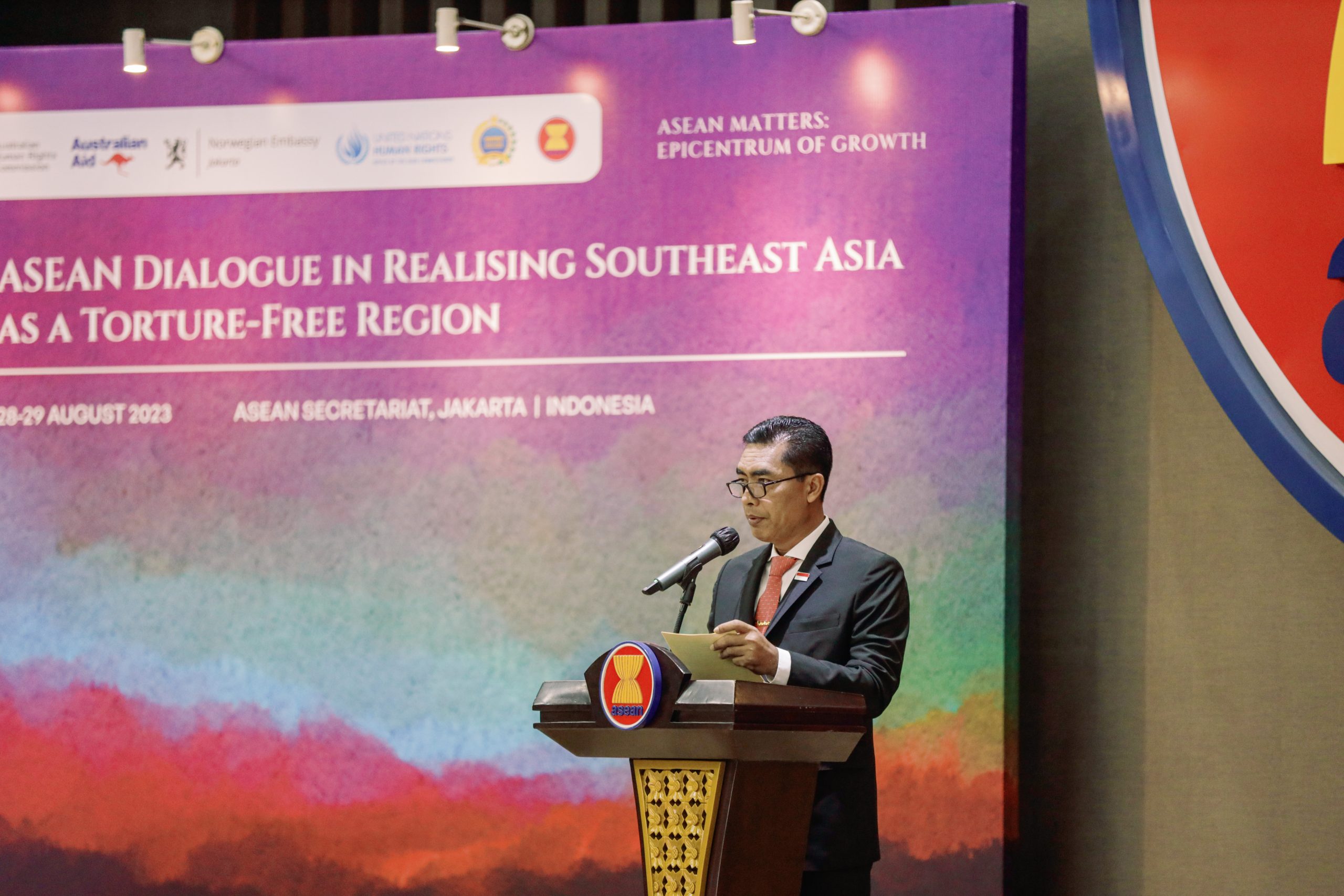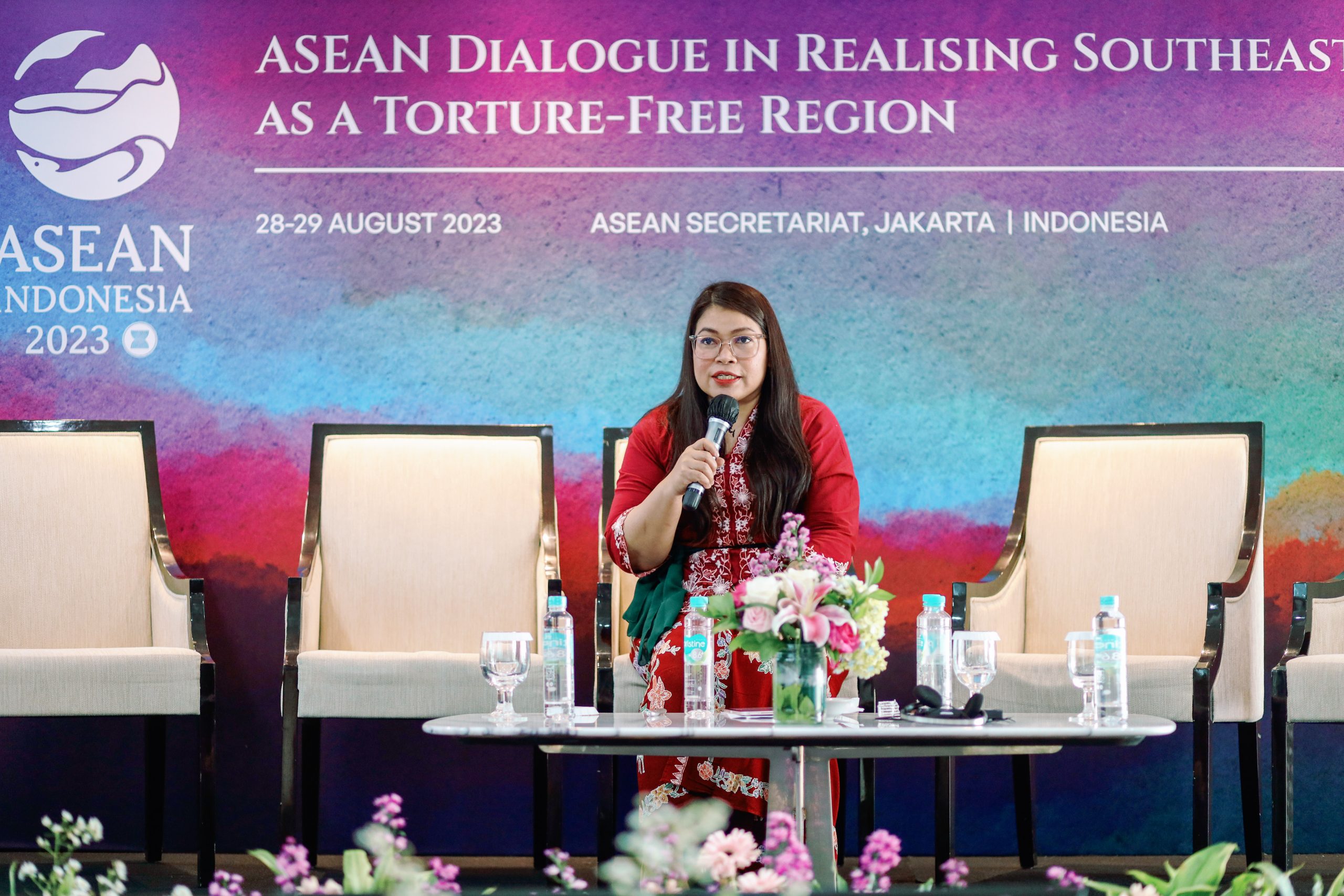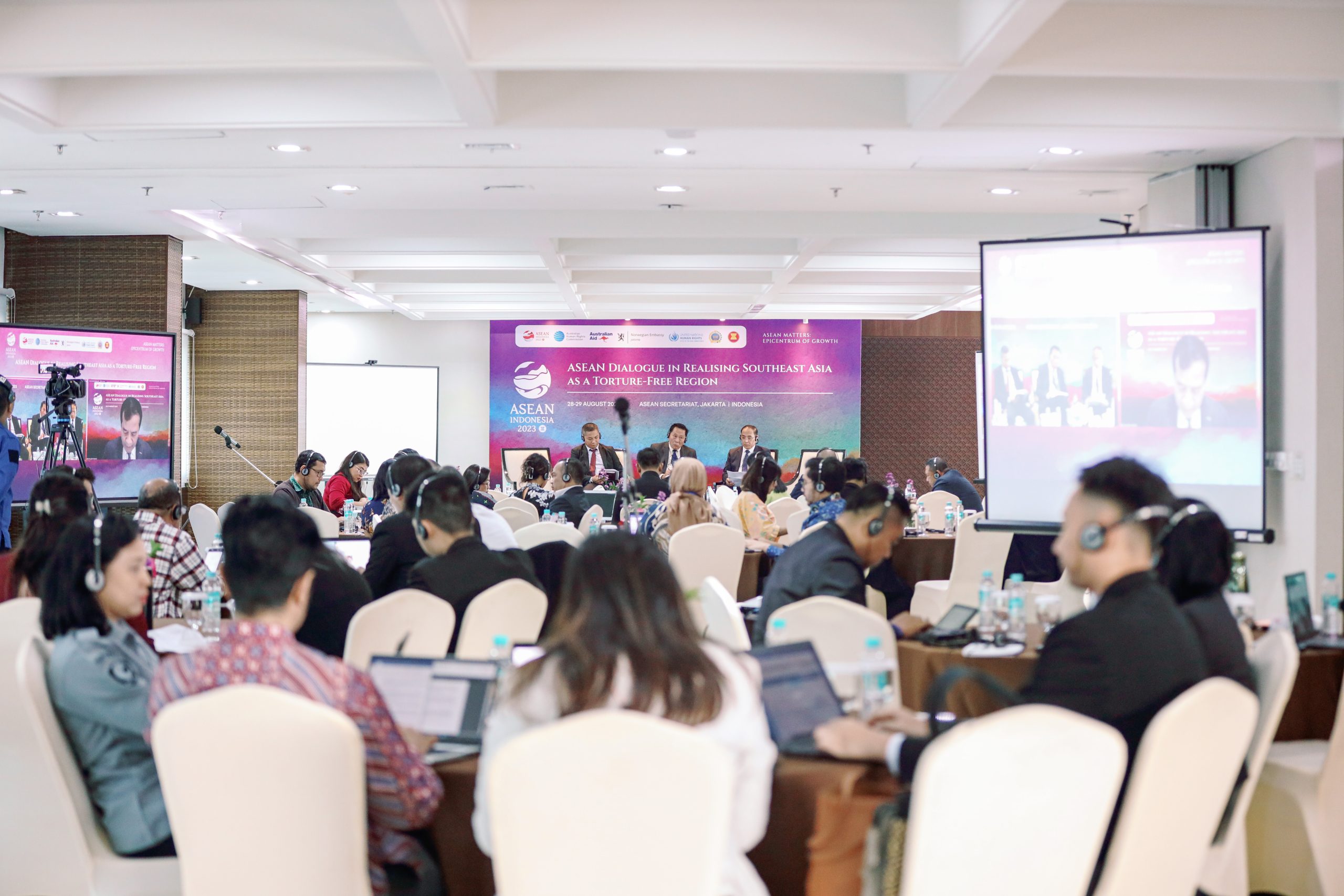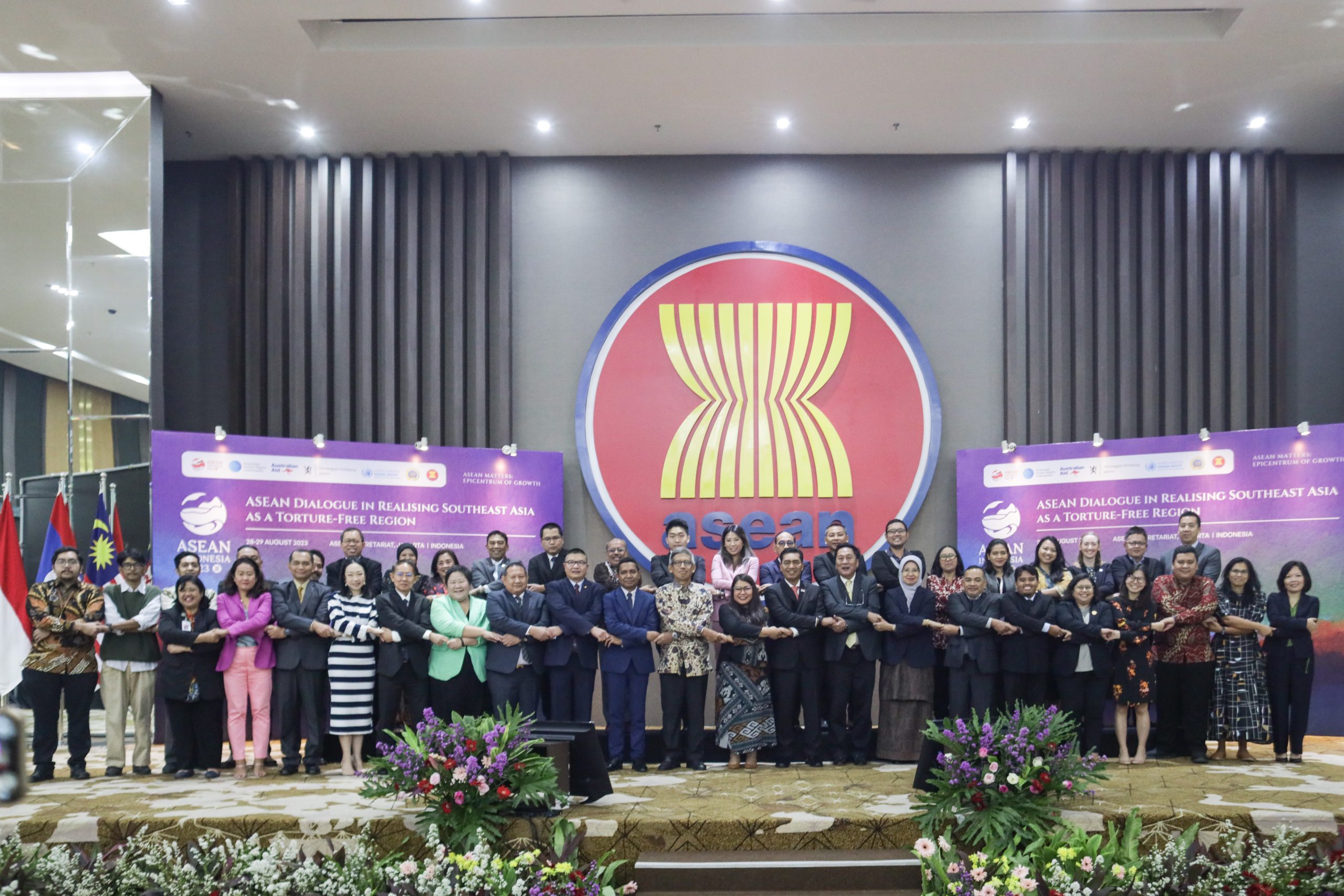
ASEAN human rights body convenes dialogue for a torture-free Southeast Asia

JAKARTA, 3 September 2023 – The ASEAN Dialogue in Realising Southeast Asia as a Torture-Free Region was held on 28-29 August 2023 at the ASEAN Secretariat in Jakarta, Indonesia.
The dialogue served as a platform for sharing practices and initiatives of ASEAN Member States (AMS) and stakeholders toward the realisation of Southeast Asia as a torture-free region. The dialogue also aimed to develop the Recommendation on the Implementation of Article 14 of the ASEAN Human Rights Declaration (AHRD) that includes torture prevention, investigation of torture allegations, prosecution for torture-related offences, and rehabilitation of torture victims.

The Chair and Representative of Indonesia to ASEAN Intergovernmental Commission on Human Rights (AICHR), Ms. Wahyuningrum said that despite the fact that governments of AMS have made some progress in domesticating criminalisation of torture into national laws, and civil society organisations have contributed to the measures of preventing torture, the struggle to eradicate torture and ill-treatment is very real.
She added that realising Southeast Asia as a torture-free region is a big task, a long-term project, and requires everyone to contribute, such as police forces, judges, prosecutors, lawyers and other law enforcement officers, diplomats, medical doctors, nurses, academics, as well as civil society organisations.
Human Rights Commissioner from Australian Human Rights Commission, Ms. Lorraine Finlay underscored that torture not only violates individual rights but also undermines the efforts of law enforcement and police officers to build trust in the justice system.
In his keynote speech, Police Commissioner General, Head of the Criminal Investigation Department of the Indonesian National Police, and Chair of the Senior Official Meeting on Transnational Crime (SOMTC), Mr. Wahyu Widada emphasised the significant role of the police and other law enforcement officials in leading efforts to better safeguard the prevention of torture and other cruel, inhuman, or degrading treatment or punishment. He stated that realising Southeast Asia as a torture-free region is doable and affirmed Indonesia’s commitment to contribute to the effort.

The dialogue, which is the fifth activity on the prevention of torture organised by AICHR since 2013, was attended by more than 75 participants coming from the ASEAN Member States, ASEAN Sectoral Bodies, universities, international organisations, and civil society organisations.
Participants identified challenges in preventing torture including the different levels of knowledge and understanding about the relevant laws on the prevention of torture, lack of resources for the law enforcers to implement their duty such as the effective use of body cameras, lack of the relevant legislation on the prevention of torture, difficulties in dismissing stigma and changing methods of investigation to exclude conduct of torture, and politicisation of torture prevention efforts.
Participants also came up with some recommendations such as the promotion of the ratification of the United Nations Convention Against Torture and its Optional Protocol, capacity building for law enforcement on investigations methods, conduct of thematic study related to gender and torture in Southeast Asia, strengthening of complaint mechanisms, and cooperation among relevant agencies and stakeholders.
This activity is part of the implementation of AICHR’s Five-Year Work Plan and jointly organised by AICHR Indonesia and the Ministry of Foreign Affairs of Indonesia with the support from the Australian Human Rights Commission, the Department of Foreign Affairs and Trade of Australia, the Royal Norwegian Embassy in Jakarta and the Office of the United Nations High Commissioner on Human Rights (OHCHR).

